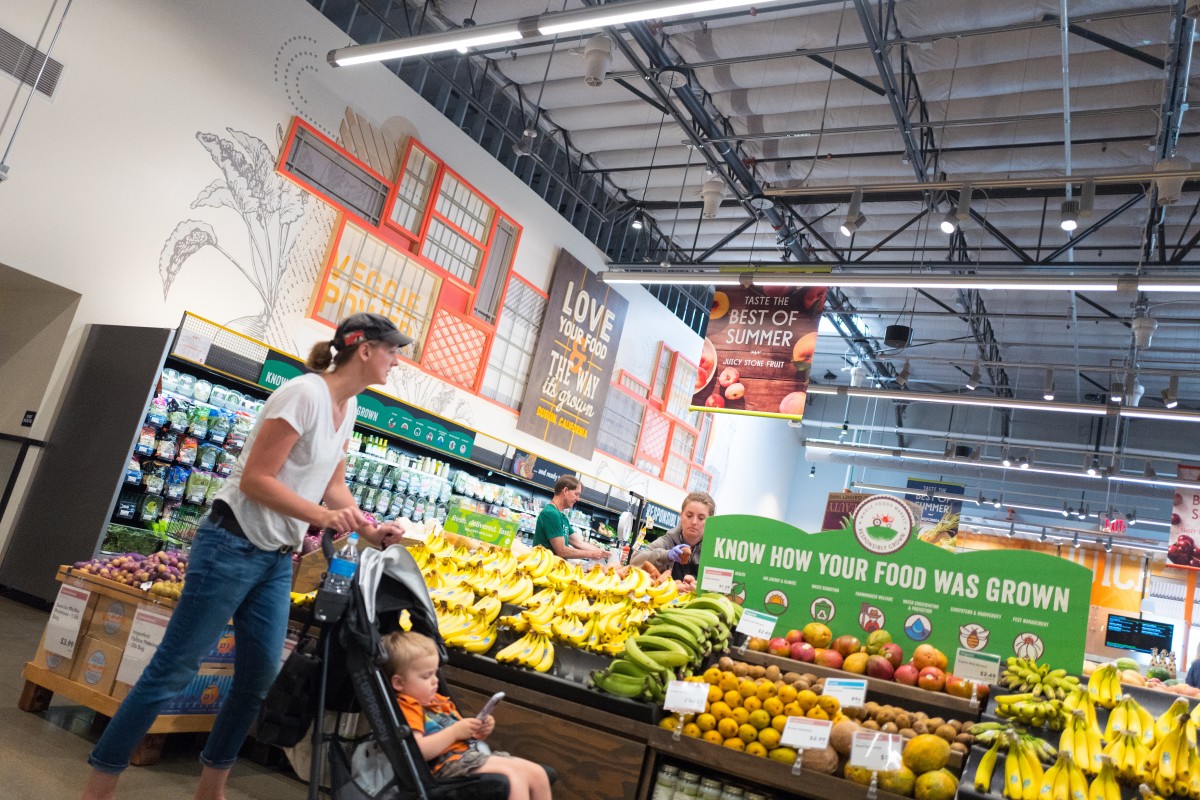
One of the things that makes organic and natural groceries so special is their scope of healthy choices.
Marketplaces like Sprouts, Trader Joe's, Wegman's, and Whole Foods have such loyal followings because they cater to a very specific audience often willing to fork over a little extra cash to get quality food with organic and healthful ingredients they can trust.
Related: Costco just brought back a beloved item (some customers are angry)
Perhaps the most successful model has been Whole Foods, which was acquired by Amazon (AMZN) -) for over $13 billion in 2017. With over 500 locations, it rose to popularity by gaining customer trust. It purveys mostly organic and natural foods -- most locations have a massive produce and perishable section -- and actively bans over 260 ingredients that it deems harmful or unhelpful.
Some of those ingredients include:
- Hydrogenated fats
- High-fructose corn syrup
- Sspartame
- Sucralose
- Saccharin
- Bleached flour
- FD&C Yellow dye No. 6
- Many preservatives
- Synthetic smoke flavor
- Shark cartilage
- Tonka bean/extract
- Sodium lauryl sulfate
- Brominated vegetable oil
In 2022, Amazon saw $18.96 billion in revenue for its brick-and-mortar stores, which is made up mostly of its Whole Foods stores plus a few others (think Amazon Go and Fresh stores). That's up 11.1% compared to the year prior, and with Whole Foods' CEO saying he wants to open 30 new stores a year, the company is certainly doing something right.
It may not be following the hyper-expansive growth model that, say, Walmart (WMT) -) follows, where 90% of the U.S. population is located within 10 miles of the superstore. But it's gaining trust of its clientele, who typically come back over and over (and can end up easily spending more per visit than at a bargain grocer).
It's that trust that has also helped to establish a loyal following of its Whole Foods-branded items, which include items less-pricey items like teas, sparkling waters, salmon, dried fruit, nuts, and crackers. Some of these items have garnered so much trust that they're actually some of the most popular items in-store, according to employees, like the Whole Foods 365-brand tortilla chips.
Every once in a while, though, Whole Foods will issue a tweak or rebrand on one of its products. In October, the grocer completely overhauled its branding that had been long overdue.

Whole Foods changes a key item
In October, Whole Foods will rebrand its Allegro Coffee to the Whole Foods brand, changing how the packaging and coloring will look on its various roasted and blended bags. All 13 different roasts will undergo the change.
The rebrand will come with new sustainability labels, certifying its commitment to a greener planet. The bags, which already each have a third-party certification from either Rainforest Alliance or Fair Trade, will also don a new seal known as Sourced For Good, which indicates it underwent Whole Foods' in-house certification process, too.
Six bags will also receive quality indicators from the Coffee Quality Institute.
“We are thrilled to bring the Sourced for Good program to more aisles across our stores, starting with our Whole Foods Market brand coffee blends,” Whole Foods Market’s Senior Vice President of Merchandising, Alyssa Vescio, said. “This certification not only deepens our relationship with suppliers, but also gives our customers the opportunity to make an even bigger impact, supporting environmental stewardship and workers in communities where these products are sourced.”
Allegro Coffee Company had been acquired by Whole Foods in 1997 and was operating as the grocer's in-house supplier. By 2021, however, Allegro's social media pages had been shut down. The new bags are expected to hit shelves by the end of October.
Get exclusive access to portfolio managers and their proven investing strategies with Real Money Pro. Get started now.







